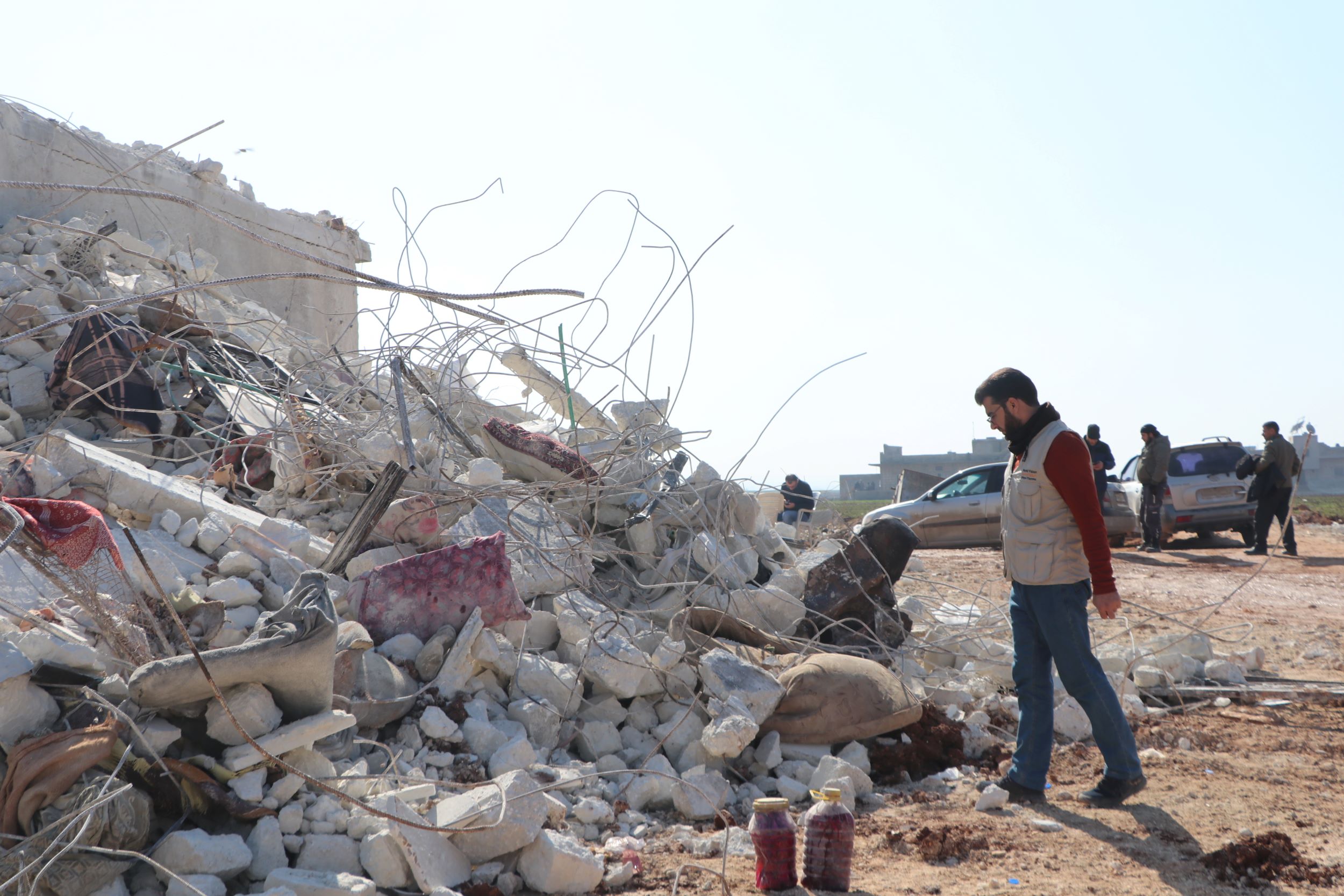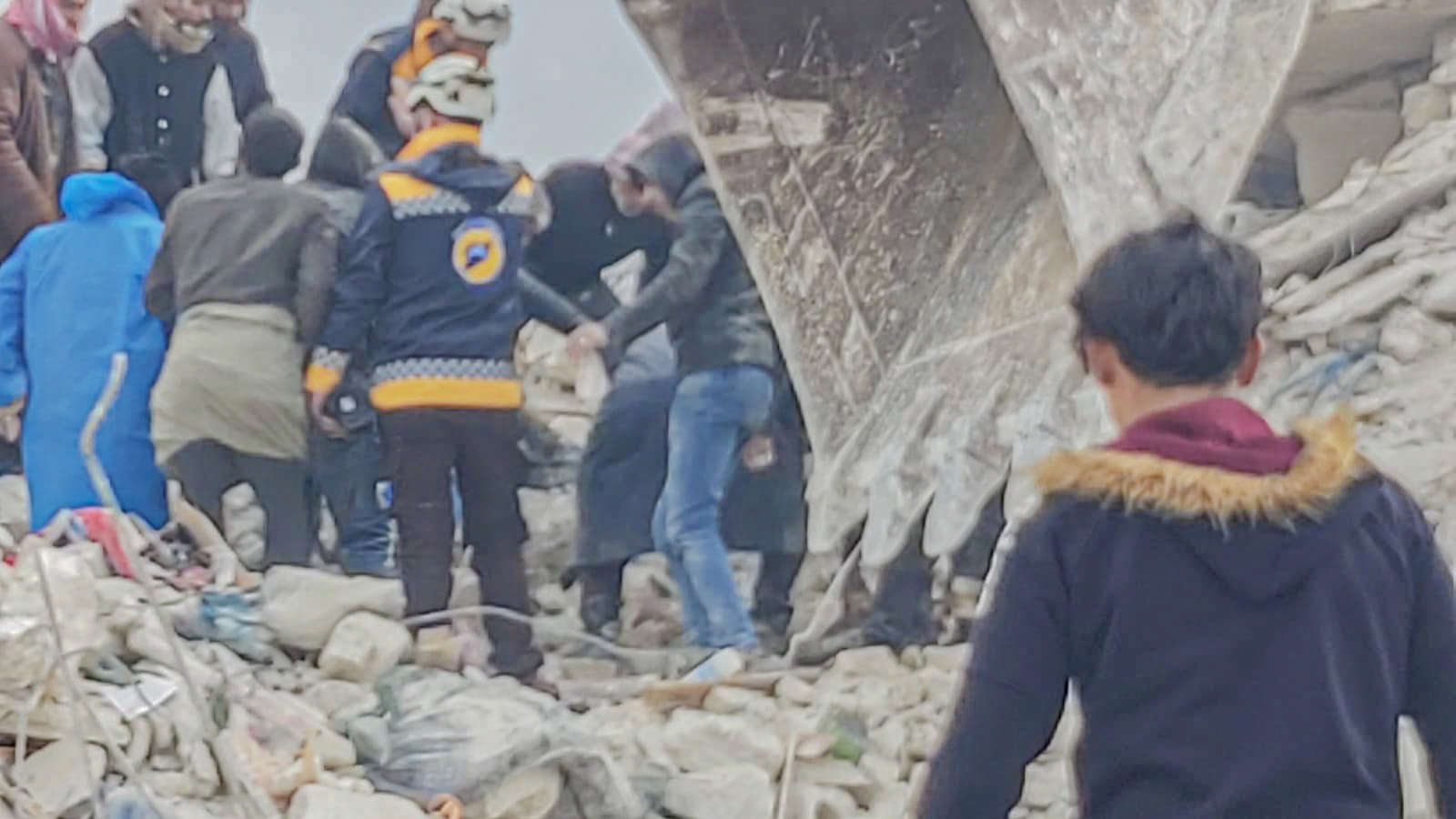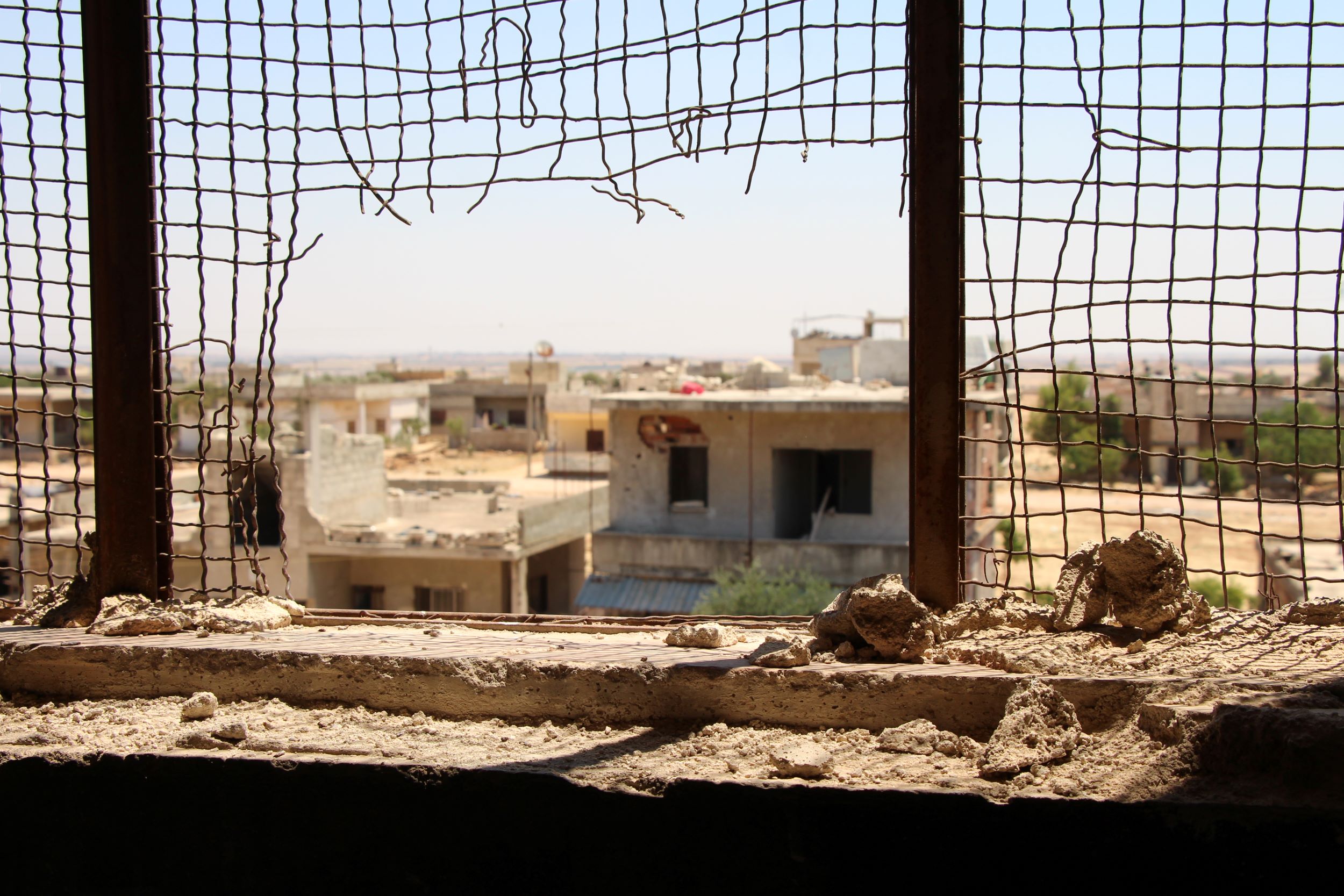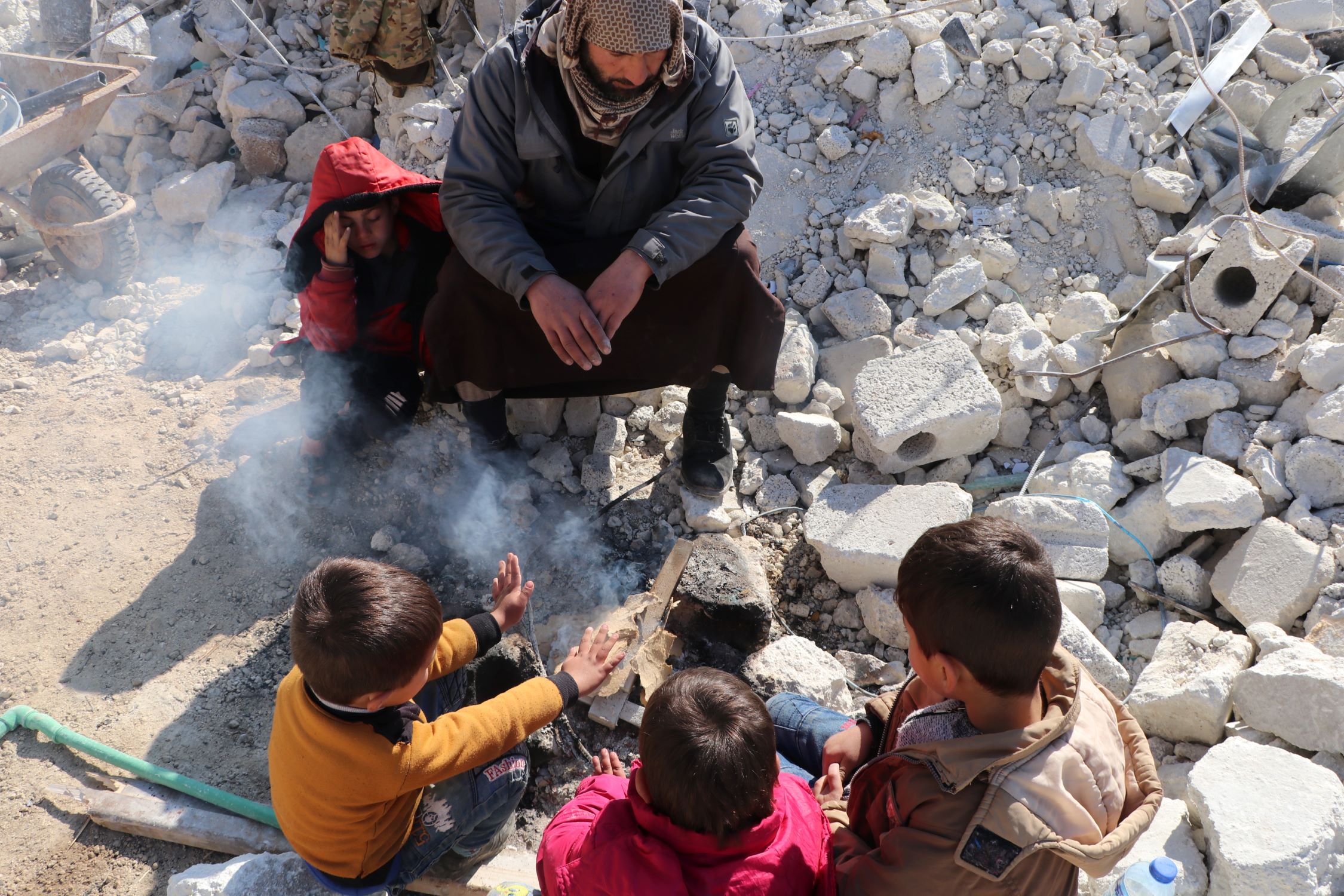
Turkey-Syria earthquake: six months on
“Just when I thought I had escaped the … war, the earthquake tore us apart”
Since the earthquake struck Syria and Turkey (officially the Republic of Türkiye) on 6 February 2023, its impact has been profound. Tragically, over 50,000 lives have been lost, and more than six million people have been displaced from their homes. The earthquake's aftermath has left a lasting mark, reshaping the lives of countless individuals in Syria and Turkey.
Sadly, it has compounded the situation in Northwest Syria, which is worse than ever before.
“Half a year has passed since the devastating earthquake struck Northwest Syria and Southern Turkey. Syrians are dealing with its after effects, on top of ongoing distress caused by enduring conflict, economic downturn, a cholera outbreak, and harsh weather conditions,” said Johan Mooij, World Vision’s Syria Response Director.
“In Northwest Syria, a growing concern lies in the increasing number of families still living in temporary shelters. Approximately 265,000 people, whose homes were destroyed by the earthquakes, are in need of proper housing. Compounding this crisis, extreme summer heat has sparked a series of devastating fires. In just three days between 15-17 July, there were over 40 fires, triggered by soaring temperatures. To date in 2023, reports reveal that more than 180 fire incidents have taken place, causing five deaths and damaging over 220 tents.”
Some people fled the conflict in Syria to live in Turkey - and have then been caught in the earthquake, like Amal.
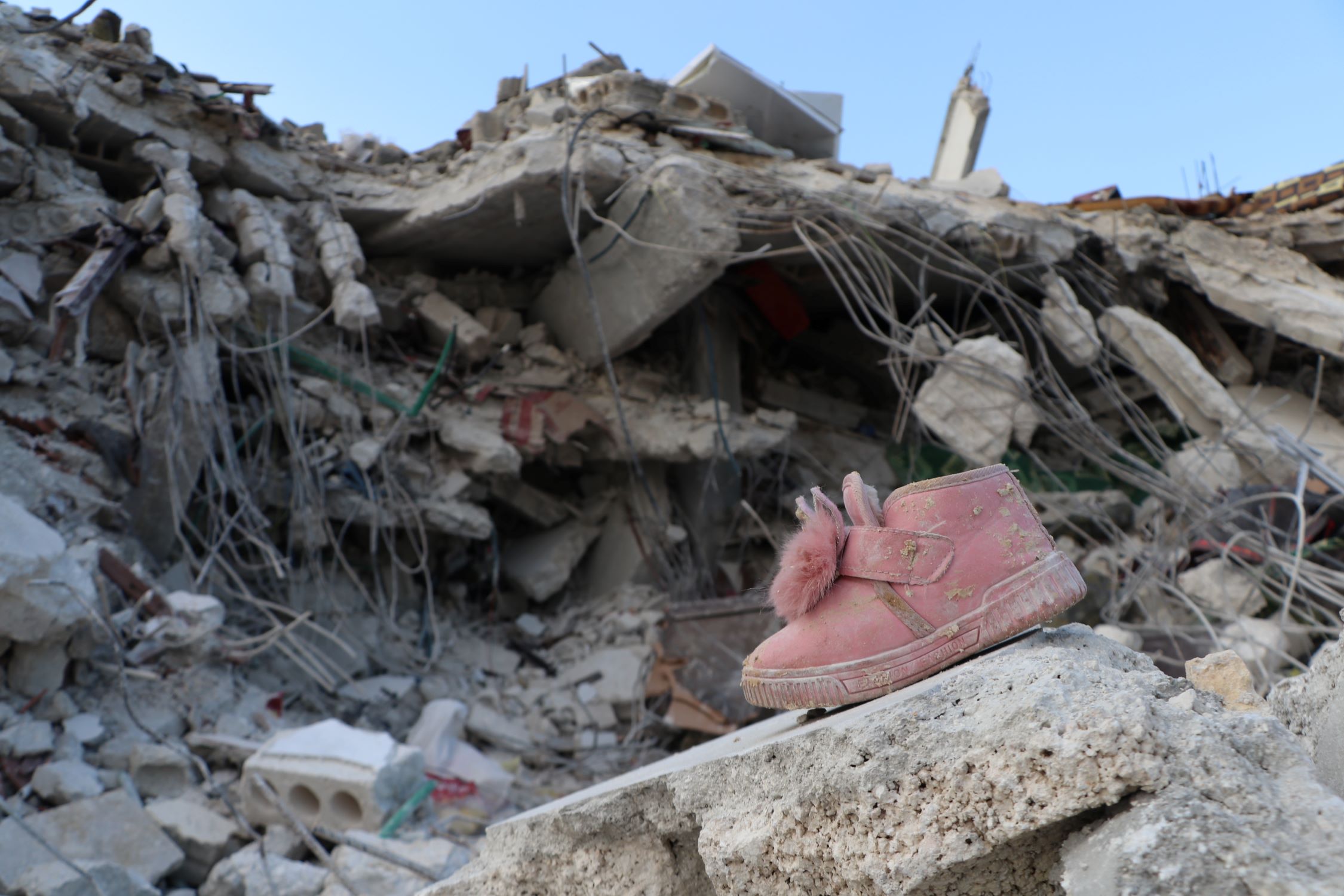
Unbearable ordeal
Amal* was one of the Syrian refugees who escaped the horrifying war in Syria - to be faced with another nightmare when the earthquake struck.
At just 28, Amal faced a series of traumatic events in Syria. Her husband had undergone critical heart surgery while she was pregnant. Not only that, they were far apart in war-torn Syria. While he was away, his living conditions led to sickness and in 2018 he died.

Amal took refuge in a school with her parents but tragedy struck again. She lost her parents when they were attacked during a trip to Damascus while seeking her child's treatment. “From that moment on, my life became an unbearable ordeal. We were subjected to harsh conditions; my mind was trapped in a suffocating existence that resembled a prison.”
For seven long months, she endured the fear from constant nearby attacks, hunger, poverty and a lack of livable shelter.
Determined to forge a new life for her son, Karam*, after war in Syria deteriorated, Amal made the difficult decision to flee to Türkiye in 2020.
Amal says, "When I came to Turkey, I had one dream in my heart: to offer Karam a life of freedom. To truly be a child. My son never went to school, never experienced the joys of playtime with toys; instead, he was exposed to guns and bombs.”
As Amal tried to rebuild her shattered world in Turkey, her hopes were disrupted once again when the devastating earthquake struck on 6 February.
"Just when I thought I had escaped the ravages of war; the earthquake tore us apart. Although thankful to be alive, I mourn the loss of my family members, loved ones, neighbours, and friends."
“I slept peacefully that night”
It was during this difficult time that Amal met the team from International Blue Crescent, who enrolled her in in a project implemented through their partnership with World Vision. Amal received voucher assistance, protection, and mental health support, as did other community members affected by the earthquake in Turkey. Reflecting on her experience, she shared her deepest sentiments:
"We are in great need of everything here, at this very moment. A knock on our door, a caring inquiry about our needs, or even a simple smile and greeting. Each time you visited our home and left behind a support package; I slept peacefully that night. Words fail to express the immense happiness it brought me. I had reached a point where even thinking about our basic necessities such as food and clothing became overwhelming. And after the earthquake, our problems multiplied, leaving me feeling utterly alone and vulnerable in this world.”
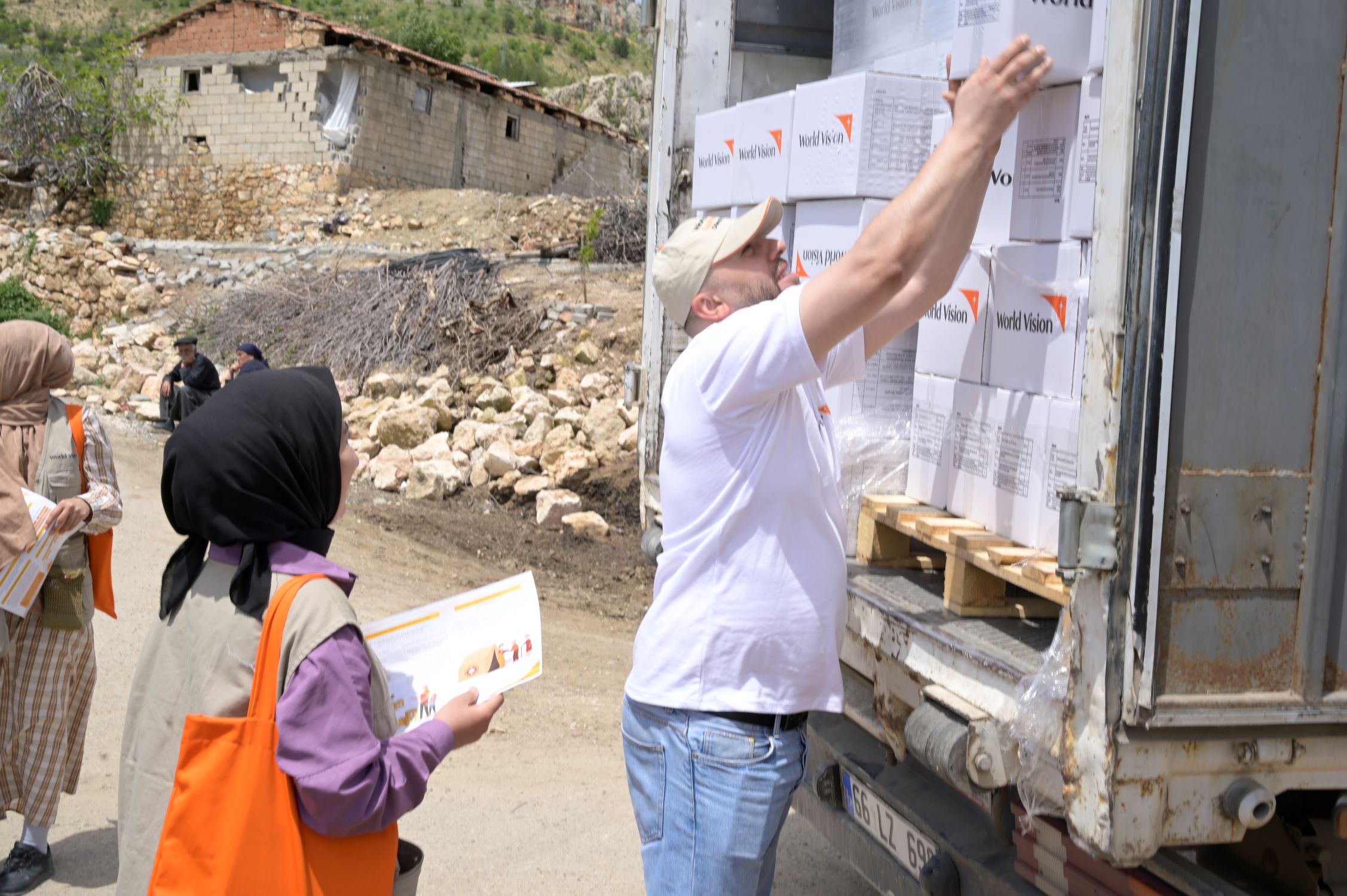
“I was not alone”
The psychosocial support sessions offered Amal new light, a connection to other women who shared her pain and struggles. "In those safe spaces, I discovered that I was not alone in my struggling. I found people who listened intently, dedicating hours to seeking solutions for my profound wounds. I realised that my feelings of despair were valid responses to the immense challenges I had endured." Slowly, a glimmer of hope emerged within her.
Amal gave this last message to World Vision’s Partners, International Blue Crescent: “Thank you from the depths of my heart for the unwavering continuous support you have offered us and the helping hand you have extended. Your kindness and compassion have made an immense difference in our lives."
Thankfully Amal and others, in both Turkey and Syria, are being helped by partners of World Vision and other organisations, but the situation continues to be of concern.
Johan Mooij explains that the introduction of food ration cuts in Northwest Syria places around 2.5 million people at imminent risk of severe hunger. Food insecurity has swelled alarmingly, with levels rising over 50% since 2015, affecting an estimated 12.1 million people. Amid this context, malnutrition rates are at an all-time high, with one in four pregnant and nursing mothers acutely malnourished, and one in four children stunted in some areas of the country.
He adds, “In this world of plenty, no child should go hungry. We're working with key stakeholders to provide lifesaving assistance to those in urgent need, address the root causes of hunger, and collaborate on a global scale to help construct more inclusive, resilient, and sustainable food systems that elevate food security, fortify nutrition, enhance health and education, and strengthen the protection measures for children, families, and communities worldwide.”
Beacon of hope
He continued, “Despite the bleak circumstances, the resilience of the people and the tireless work of World Vision and its partners offer a beacon of hope. However, the need for international assistance and attention remains critical. As we observe the half-year anniversary of the earthquake, we implore individuals, businesses, governments, and international bodies to rally in support of the victims of this crisis, to help them rebuild and recover.”
World Vision aims to empower earthquake survivors to reclaim their livelihoods and ensure the well-being of children. We are empowering families through initiatives like a cash and voucher programme, technical vocational educational training, small enterprise development, and cash-for-work schemes. Our goal is to foster hope within these affected people and restore individual dignity and control, promoting long-lasting positive outcomes. Through these programmes, World Vision is currently reaching over 800,000 beneficiaries in Syria and Turkey.
*Names have been changed to protect identity.

